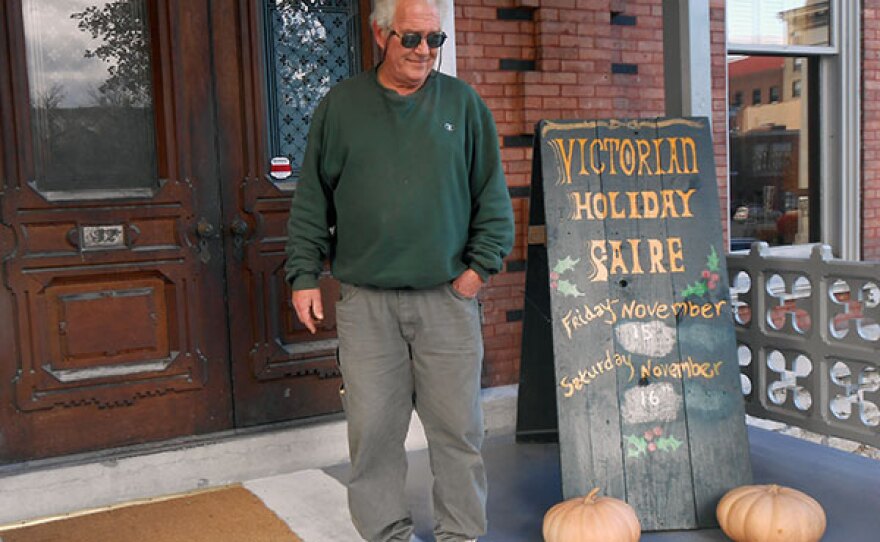Every winter, Alfred Hitchcock's classic horror movie, “The Birds” gets a replay in Watertown. But not on the silver screen. Thousands of crows fly in from the countryside to roost overnight. The city's trying to evict them.
At dusk each night, bare treetops come alive with a canopy of trembling, iridescent black wings. But these birds' weapons are less beaks and talons than...well, poop. A downtown landmark is ground zero.
At the Jefferson County Historical Society, a long, wooden wheelchair ramp is coated with purple-and-white bird scat. The railing too – there's really nowhere to put your hand.
“What it entails for us is an undue amount of work every morning that they're here,” says David Coleman, the property's caretaker. It took him two hours to pressure-wash the ramp.
Everyone in the city knows the crows are fond of the property.
“Here at the museum, we have over 100,000 artifacts, and people are talking about crows,” he says. “What a waste of time and effort!”
Crows fly into cities in the winter because the lights help them see predators, the air is warmer, and there can be more food.
But Watertown doesn't want them to get cozy. The city council just okayed a three-year, $15,000 plan to chase them off. That buys about five nights each year of fireworks, lasers and even “effigies” – faux dead birds hung in trees. The contractor can even shoot some.
Kevin McGowan, a Cornell University ornithologist, says the effort needs to be continuous to work. On the bright side, he says, people shouldn't fear illness from the feces. “One good daycare spreads more disease every winter than, basically, all the crow roosts in New York,” he says.
Upstate New York has had urban crow flocks for about 15 years, McGowan says. Experts think conservation efforts mean there are more birds, so they're showing up in new places. So wildlife-human conflict means nature is thriving.
And birds overwhelming the landscape is nothing new. Before people drove them extinct in the early 1900s, passenger pigeons were so dominant, they were the stuff of literature. “Every author says the same thing: 'When the flock flew by, it darkened the sky for hours,'” McGowan says. “Here you have, oh, 10,000 crows – don't think about Alfred Hitchcock; think about passenger pigeons. And this is just a hint at what that awesome spectacle must have been like.”
On the other hand, the waste of billions of birds would likely be an equally awesome spectacle. And one caretaker Coleman will happily do without.






